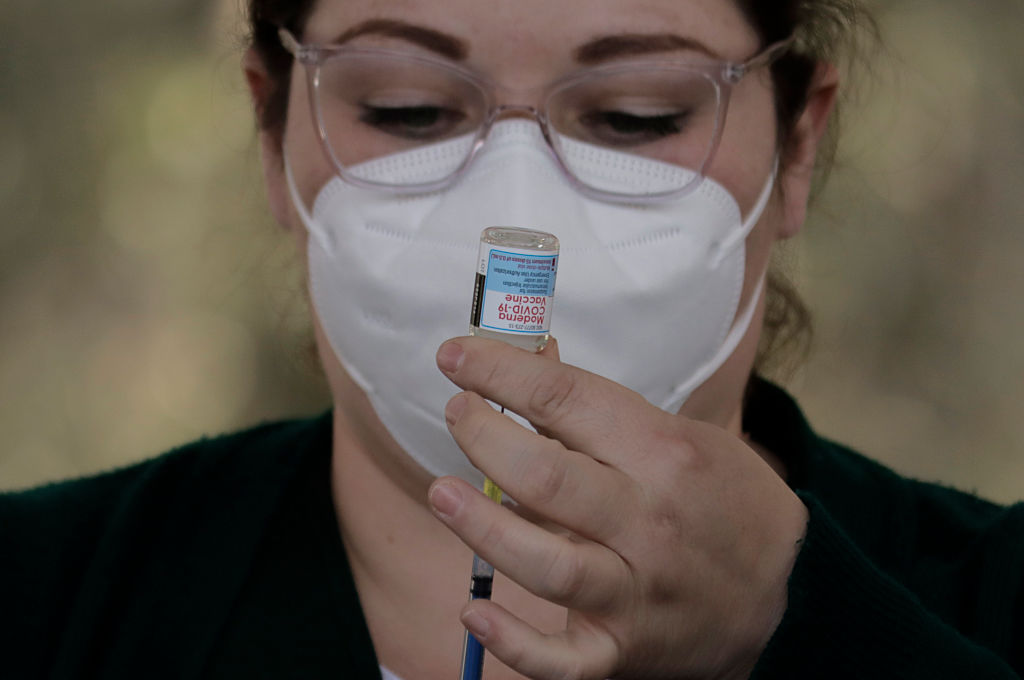
Moderna reported today the first data on how well its currently authorized vaccine and booster hold up against the Omicron variant, which quickly dominated new infections around the world after health experts first described the variant last November. The company also announced that it is starting to study its Omicron-specific vaccine.
In a correspondence published in the New England Journal of Medicine, the company’s scientists reported the results of a study involving blood samples from a small number of vaccinated participants. Antibody levels generated by Moderna’s primary two-dose regimen continued to neutralize Omicron in lab tests, but these levels were 35 times lower against Omicron than the original SARS-CoV-2, against which the vaccine was designed.
A booster dose of the vaccine—which is half of one dose of the original shot—increased antibody levels in 20 study participants to 20 times higher than levels generated after the second dose of the vaccine, therefore restoring some of the waned protection. The scientists also tested a booster at the same dose as the primary two doses in another 20 volunteers, and that booster produced antibody levels that were at least two times higher than those generated by the half-dose booster. Currently, however, the U.S. Food and Drug Administration has authorized only the half-dose booster of Moderna’s shot, based on data before Omicron emerged that the half dose elicited similar antibody levels against previous variants as another full-dose booster.
Read More: We Urgently Need a New National COVID-19 Response Plan
These antibodies against Omicron started to wane after about six months, the company reported. After hitting a peak about a month after the booster, neutralizing antibody levels dropped 6.3 fold; even more concerning, this decline occurred more quickly than the decline against the original virus that the vaccine targeted.
Such rapid waning of protection after boosting with the existing vaccine makes a strong case for potentially boosting with an Omicron-specific shot, which the company is studying. That trial will include 300 people in 24 sites across the U.S. (This week, Pfizer and BioNTech also announced that they have started testing an Omicron-specific vaccine.) Moderna’s scientists are also evaluating combination vaccines, in which they put together vaccines developed for different variants, including one that targets the original virus and one that targets Omicron. Such a cocktail approach may provide broader, more durable protection against COVID-19.
More Must-Reads from TIME
- Cybersecurity Experts Are Sounding the Alarm on DOGE
- Meet the 2025 Women of the Year
- The Harsh Truth About Disability Inclusion
- Why Do More Young Adults Have Cancer?
- Colman Domingo Leads With Radical Love
- How to Get Better at Doing Things Alone
- Michelle Zauner Stares Down the Darkness
Contact us at letters@time.com